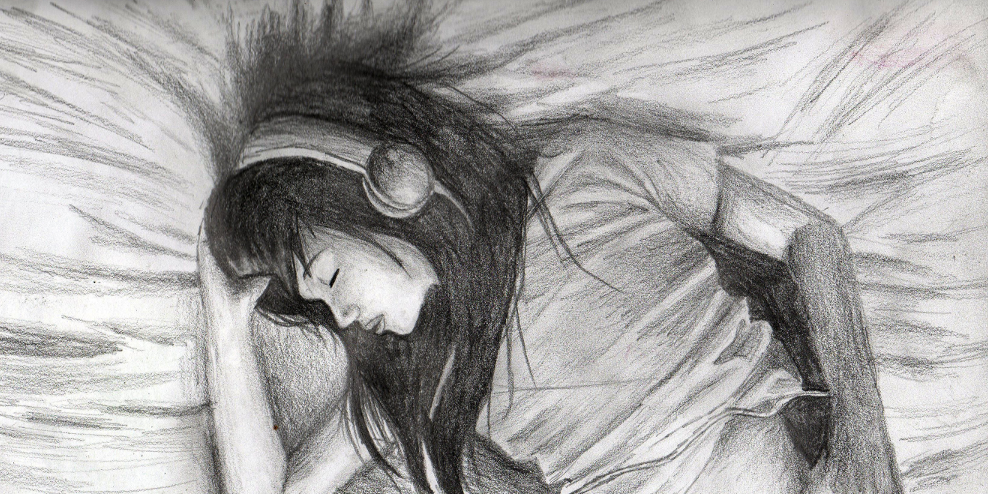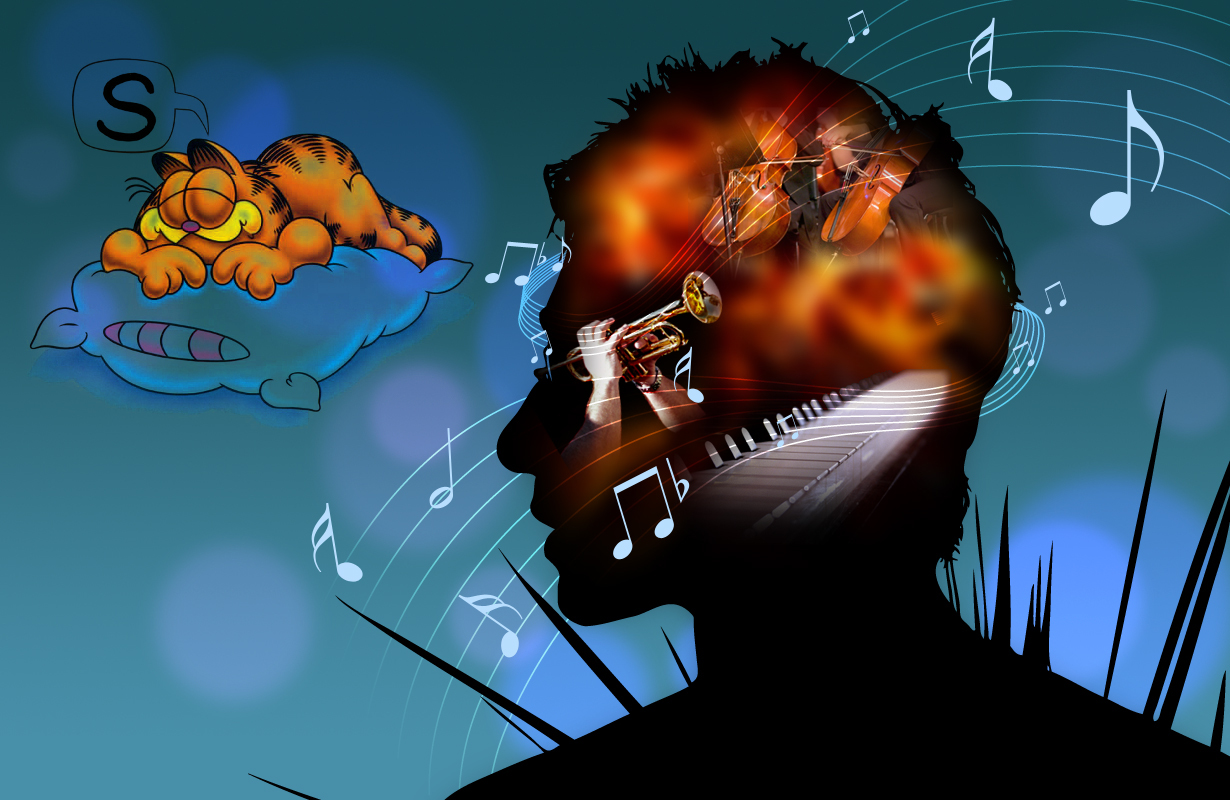This is the first of several articles on String Visions dealing with the issue of sleep. I encourage you to share your thoughts about this subject with us in the comments form at the bottom.
Everybody understands the necessity of sleep, yet there is so much about sleep that is not understood. Despite the large body of research over the last century, none of the theories offer a complete answer to our question, with arguments ranging from somatic restoration to metabolic support. [1] This research on sleep has explored the various effects on:
- Memory (formation, consolidation, development)
- Cognitive function and performance
- Learning and studying
- Motor Skills
- Creativity
All of these area impact our abilities to learn, perform, and enjoy our music. For us musicians, we want to know whether or not sleeping helps us to become more efficient in memorization, in maximizing our motor skills, and in helping find those sources of inspiration. By understanding more thoroughly how sleep affects us, we can become better equipped to not only develop healthy habits for restoring our physical and mental energies after a long day of practicing, but also maximizing the time we spend working on our art.

Classical music helps us sleep, and sleep helps us with our classical music. (Credit for image goes to A-L-i-E-Nxx: http://a-l-i-e-nxx.deviantart.com/art/Music-send-me-to-sleep-139781420
For example, the formation and consolidation of memory has a direct impact on our ability to memorize music. [2]
Traditionally, memorizing music is done by playing through a piece repeatedly until it becomes automatic (rehearsal). Musicians who practice this way rarely attempt to put the music into their conscious or awake mind. Thus, the music only exists in the artistic and expressive part of the brain, or the subconscious. During a performance, when the pressure on the musician is great, it is difficult to stay in the subconscious, where the music was memorized. The brain goes “conscious” and the mind of the performer can go “blank”. This may contribute to musicians having “memory slips” during a performance.
In other words, the muscle memory develops in the wrong muscle, the hands rather than the brain). By storing music in the active and conscious part of your brain, you can really say that you are “memorizing,” in that you are developing long-term memory in the right muscle. [3]
We are only just now beginning to understand on a more thorough level why sleep has the benefits it does. Marcos Frank, Associate Professor of Neuroscience at the University of Pennsylvania School of Medicine and an highly-regarded expert in the field of sleep science, participated in a major international collaborative study which found that during sleep all of the necessary changes that form the basis for memory information occur in brain synapses. A molecule called N-methyl D-aspartate receptor (NMDAR) emerges, receiving extracellular signals in the form of glutamate and regulating the flow of calcium ion into cells. Calcium, which is an intracellular signaling molecule, activating and deactivating other downstream enzymes as necessary. The result is strengthening of neural connections and a reorganization of the visual cortex. [4]
The core finding is that all of this happens only during sleep. These molecular processes that are so important to the formation of memory are an occurrence unique to sleeping.
As we know, studying music requires just as much (if not more) mental as physical capability. The now deceased author, teacher, and concert violinist Robert Gerle once wrote that: “Recognition is when you can read a piece fluently with music. Recall is when you can play the piece fluently without music.” In order to move from recognition to recall, Gerle frequently taught a list of ten steps to work through the process of memorizing a piece. The first three are done with only the mind, building roadmaps in the head, making those roadmaps concrete by writing them down, and “mentalizing” by practicing the music in your head with all of your roadmaps incorporated before you even pick up the instrument. The other seven steps also require intensive mental investment. [5]
It’s a stretch to say with certainty that more sleep = less memory slips. But, since the neuro-activity integral in memory formation and consolidation occurs only during sleep, it is undeniable that the effects of sleep on one’s overall capacity to retain AND access information bears a strong influence on one’s ability to recall music.
Scientific research provides some fascinating insights, but the field is constantly evolving, providing us with new information to consume, new hypotheses to test, and new dialogue to engage in.
So let’s start that dialogue! How much sleep do you get? How do you think it affects your ability to learn and study music?
In the next article, Dr. Stephanie Haun looks at the relationship between memory consolidation during sleep and the development of motor skills.
[1] Frank, Marco G. “The Function of Sleep.” In Sleep: A Comprehensive Handbook, ed. Teofilo Lee-Chiong. Hoboken, New Jersey: John Wiley & Sons INC., 2006. 45-49.
[2] From “The Violin Site.” http://www.theviolinsite.com/memorizing_music.html
[3] The body of literature is very extensive, including many more than these ones.
- Stickgold, Robert, and Matthew P. Walker. “Memory consolidation and reconsolidation: What is the role of sleep?” Trends in Neuroscience 28, no. 8 (2005): 408-415. http://walkerlab.berkeley.edu/reprints/Stickgold&Walker_TINS_05.pdf
- Walker, Matthew P. “Sleep to Remember.” American Scientist 94, no. 4 (2006): 326-333. http://walkerlab.berkeley.edu/reprints/Walker_AmericanScientist.pdf
[4] Aton, Sara J., Julie Seibt, Michelle Dumoulin, Sushil K. Jha, Nicholas Steinmetz, Tammi Coleman, Nirinjini Naidoo, and Marcos G. Frank. “Mechanisms of Sleep-Dependent Consolidation of Cortical Plasticity.” Neuron 61 (February 2009): 454–466. http://www.ioi.knaw.nl/viscog/temp/aton09.pdf.
[5] Gerle, Robert. The Art of Practicing Violin. Boston: EC Schirmer Music Co, 1983. 76-79















Curses! My future doctoral thesis is taken right out under the rug from me by this article. I have always seen a direct connection between speed of memorizing music and how much sleep, ‘mentalizing practice’, and listening to various recordings I did. The results are astounding, and better yet, the more I invest in those things, the less I seem to need to practice because the only missing factor is muscle memory, which takes a surprisingly short amount of time to gather. My senior cello recital this spring was entirely from memory and I had not a single instance of the ‘performance blank’ that this article refers to, something I see rampant in today’s music schools.
I have also heard that many so-called geniuses (such as Einstein and Edison) spend an inordinate amount of time day dreaming. Edison fantasized about illuminating the whole surface of the planet (and by god I think his dream came true, no?). I feel that this could be another factor that deserves research and consideration for how to not just boost the musical mind but how to push the boundaries in an already saturated field.
Anna
Thanks for your comment! Don’t worry. You can still use this idea for your thesis. Research and science are always changing and advancing. What will be known in the future is so much more than what we can know at this moment.
I am curious to learn more about your conception of “mentalizing,” How exactly did you practice the cello when you were preparing for your recital? You said that you didn’t have a single memory slip which is fantastic. It would be great to know more about the specific strategies and habits in your practice.
As far as your last paragraph, I think this is also a great idea for a dissertation!
Thanks for this post, Colin. I’ve been enjoying the info from StringVisions. Great work!
Another great (and freely available) study on this subject can be found at:
http://www.plosone.org/article/info:doi/10.1371/journal.pone.0000341
And another study (not so freely available), specific to sleep and music learning is by music education researchers Amy Simmons and Bob Duke of the University of Texas, Austin:
Simmons, A. L., & Duke, R. A. (2006). Effects of sleep on performance of a keyboard melody. Journal of Research in Music Education, 54(3), 257-269.
Jonathan,
Thank you very much for the comment. I really appreciate it. The article you linked to is great.
I have actually read the other one by Simmons and Duke. The University of Texas Austin has the pdf posted: http://cml.music.utexas.edu/assets/pdf/SimmonsDuke2006.pdf
Phenomenal stuff. Thank you for sharing these resources.